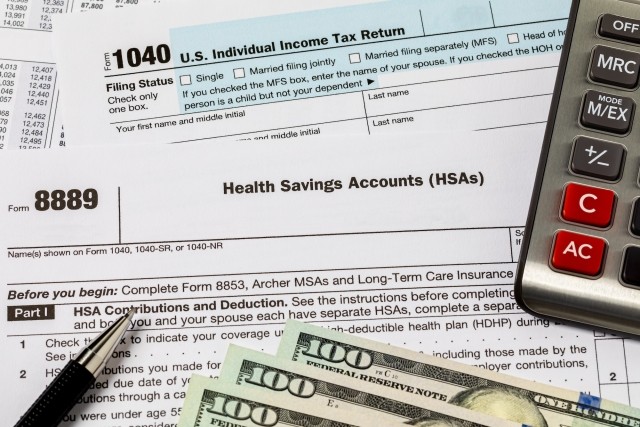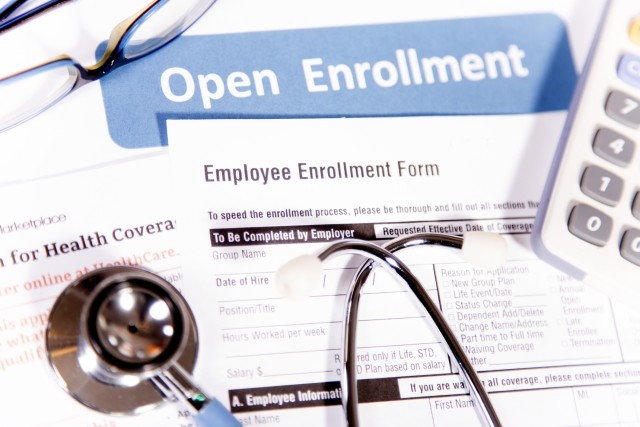Employee Benefits Compliance Alert
Compliance Alert: IRS Adjusts 2018 HSA Contribution Limit – Again
The IRS has announced it is modifying the annual limitation on deductions for contributions to a health savings account (“HSA”) allowed for taxpayers with family coverage under a high deductible health plan (“HDHP”) for the 2018 calendar year. Under Rev. Proc. 2018-27, taxpayers will be allowed to treat $6,900 as the annual limitation, rather than the $6,850 limitation announced in Rev. Proc. 2018-18 earlier this year.
The IRS has announced it is modifying the annual limitation on deductions for contributions to a health savings account (“HSA”) allowed for taxpayers with family coverage under a high deductible health plan (“HDHP”) for the 2018 calendar year. Under Rev. Proc. 2018-27, taxpayers will be allowed to treat $6,900 as the annual limitation, rather than the $6,850 limitation announced in Rev. Proc. 2018-18 earlier this year. The HSA contribution limit for individuals with family HDHP plan coverage was originally issued as $6,900 last May in Rev. Proc. 2017-37. Earlier this year, the IRS announced a $50 reduction in the maximum deductible amount from $6,900 to $6,850 due to changes made by the Tax Cuts and Jobs Act. Due to widespread complaints and comments from individual taxpayers, employers, and other major stakeholders, the IRS has decided it is in the best interest of “sound and efficient” tax administration to allow individuals to treat the originally released $6,900 as the 2018 family limit. The IRS acknowledged that many individuals had already made the maximum HSA contribution for 2018 before the deduction limitation was lowered and many other individuals had made annual salary reduction elections for HSA contributions through employers’ cafeteria plans based on the higher limit. Additionally, the costs of modifying various systems to reflect the reduced maximum would be significantly greater than any tax benefit associated with an unreduced HSA contribution.
| Revised 2018 HDHP and HSA Limits | Single / Family |
|---|---|
| Annual HSA Contribution Limit | $3,450 / $6,900 |
| Minimum Annual HDHP Deductible | $1,350 / $2,700 |
| Maximum Out-of-Pocket for HDHP | $6,650 / $13,300 |
Rev. Proc. 2018-27 provides guidance for those taxpayers who already took a distribution in 2018 from their HSA based on the reduced maximum limit of $6,850. Anyone who receives a distribution from an HSA in excess of the $6,850 limit may treat that distribution as the result of a “mistake of fact due to reasonable cause.” The portion of a distribution (including earnings) that an individual repays to the HSA by April 15, 2019, will not be included in the individual’s gross income or be subject to the 20% additional tax for non-medical distributions. The repayment will not be subject to the 6% excise tax on excess contributions either. Mistaken distributions that are repaid to an HSA are not required to be reported on Form 1099-SA or Form 8889 and are not required to be reported as additional HSA contributions. Alternatively, if an individual decides not to repay such a distribution it will not have to be included in gross income or subject to the additional 20% tax as long as the distribution is received by the individual’s 2018 tax return filing due date. This tax treatment, however, does not apply to contributions from an HSA that are attributable to employer contributions if the employer does not include any portion of the contributions in the employee’s wages because the employer treats $6,900 as the annual contribution limit. In that scenario, the distribution would be included in the individual’s gross income and subject to the 20% additional tax unless it was used to pay for qualified medical expenses. In other words, if the employee withdraws the $50 and does not return it to the HSA, it’s not includible in income or subject to the 20% additional tax unless the $50 is reported as an employer contribution on the employee’s W-2 (in box 12, code W), in which case it would be includible in income and subject to the 20% additional tax. Employers who previously informed employees that the limit was lowered should consider informing them now about the new limit and repayment option. DOWNLOAD PDF VERSION > This alert was prepared for Woodruff Sawyer by Marathas Barrow Weatherhead Lent LLP, a national law firm with recognized experts on the Affordable Care Act. Contact Peter Marathas or Stacy Barrow at pmarathas@marbarlaw.com or sbarrow@marbarlaw.com. The information provided in this alert is not, is not intended to be, and shall not be construed to be, either the provision of legal advice or an offer to provide legal services, nor does it necessarily reflect the opinions of the agency, our lawyers or our clients. This is not legal advice. No client-lawyer relationship between you and our lawyers is or may be created by your use of this information. Rather, the content is intended as a general overview of the subject matter covered. This agency and Marathas Barrow Weatherhead Lent LLP are not obligated to provide updates on the information presented herein. Those reading this alert are encouraged to seek direct counsel on legal questions. © 2018 Marathas Barrow Weatherhead Lent LLP. All Rights Reserved.
Table of Contents








